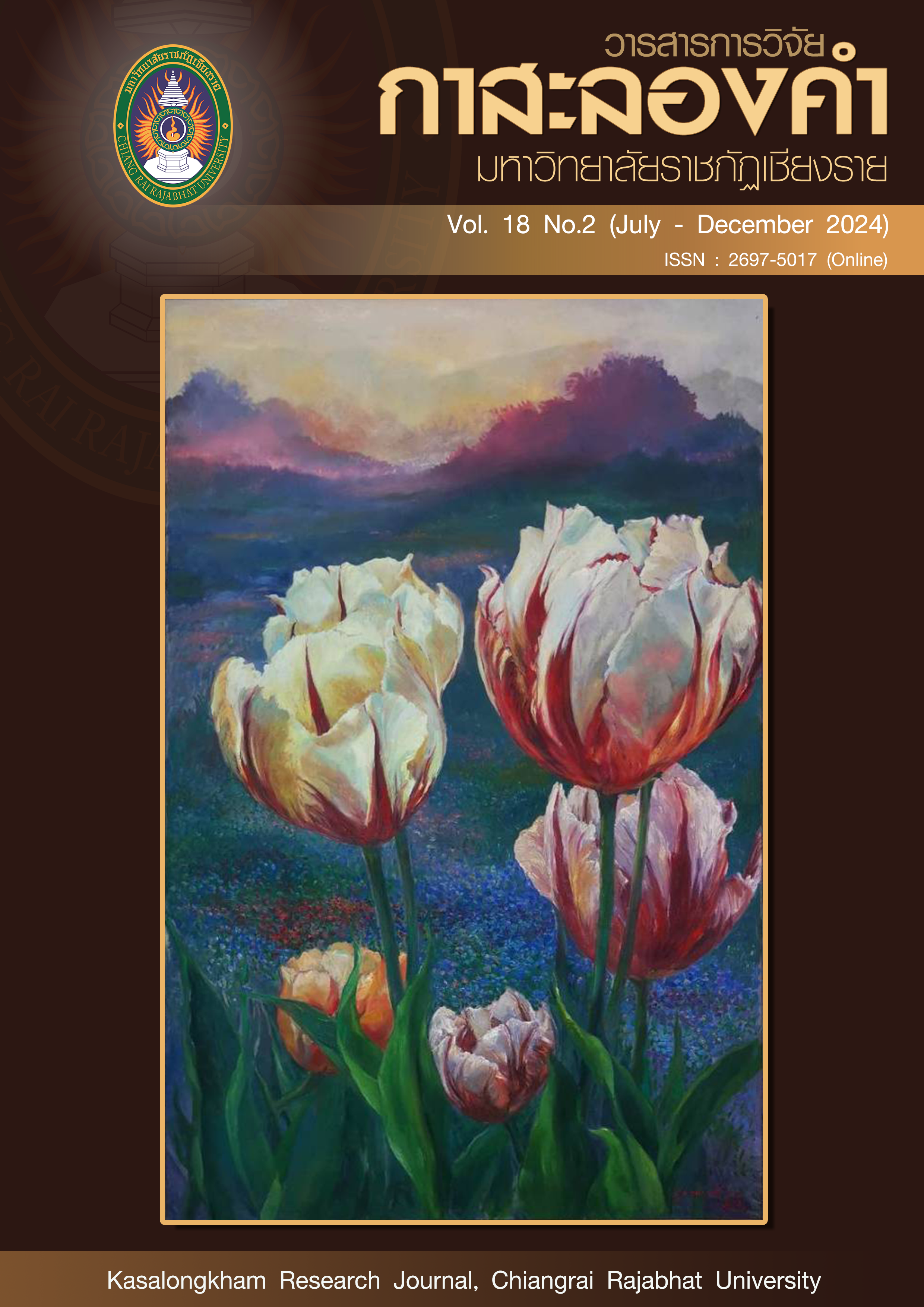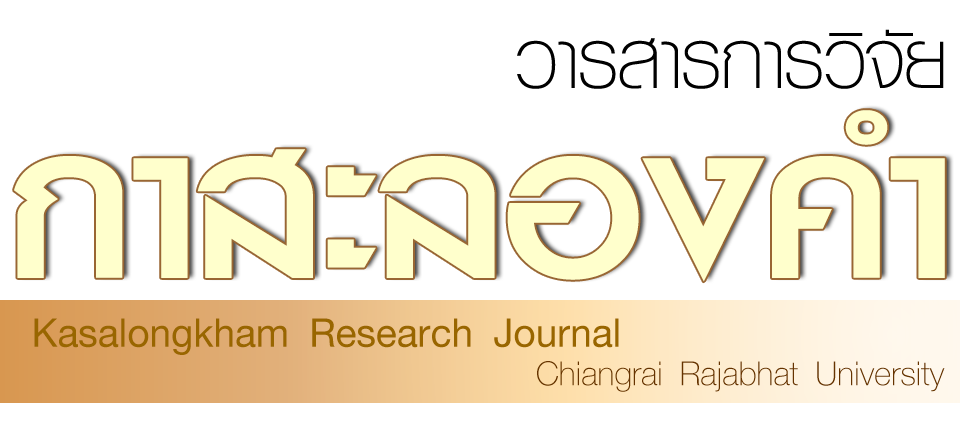ผลการจัดการเรียนรู้แบบสืบเสาะหาความรู้ตามแนวคิดสะเต็มศึกษาเรื่อง เตาอบพลังงานแสงอาทิตย์ ที่มีต่อความสามารถในการแก้ปัญหาทางวิทยาศาสตร์ และผลสัมฤทธิ์ทางการเรียนของนักเรียนชั้นมัธยมศึกษาปีที่ 1 โรงเรียนธนาคารออมสิน จังหวัดประจวบคีรีขันธ์
คำสำคัญ:
การจัดการเรียนรู้แบบสืบเสาะหาความรู้, สะเต็มศึกษา, ความสามารถในการแก้ปัญหาทางวิทยาศาสตร์, ผลสัมฤทธิ์ทางการเรียนบทคัดย่อ
การวิจัยครั้งนี้มีวัตถุประสงค์เพื่อ (1) เปรียบเทียบความสามารถในการแก้ปัญหาทางวิทยาศาสตร์ของนักเรียนที่ได้รับการจัดการเรียนรู้แบบสืบเสาะหาความรู้ตามแนวคิดสะเต็มศึกษากับการจัดการเรียนรู้แบบปกติ และ (2) เปรียบเทียบผลสัมฤทธิ์ทางการเรียนเรื่อง พลังงานความร้อนของนักเรียนที่ได้รับการจัดการเรียนรู้แบบสืบเสาะหาความรู้ตามแนวคิดสะเต็มศึกษากับการจัดการเรียนรู้แบบปกติ กลุ่มตัวอย่างเป็นนักเรียนชั้นมัธยมศึกษาปีที่ 1 โรงเรียนธนาคารออมสิน จังหวัดประจวบคีรีขันธ์ จำนวน 2 ห้องเรียน ๆ ละ 35 คน ซึ่งได้มาโดยการสุ่มแบบกลุ่ม (Cluster random sampling) เครื่องมือที่ใช้ในการวิจัย คือ (1) แผนการจัดการเรียนรู้แบบสืบเสาะหาความรู้ตามแนวคิดสะเต็มศึกษาเรื่อง เตาอบพลังงานแสงอาทิตย์ จำนวน 5 แผน (2) แผนการจัดการเรียนรู้แบบปกติเรื่อง พลังงานความร้อน จำนวน 5 แผน (3) แบบทดสอบวัดความสามารถในการแก้ปัญหาทางวิทยาศาสตร์ และ (4) แบบทดสอบวัดผลสัมฤทธิ์ทางการเรียน สถิติที่ใช้วิเคราะห์ข้อมูล คือ ค่าเฉลี่ย ส่วนเบี่ยงเบนมาตรฐาน และการทดสอบค่าที (t-test for independent samples) ผลการวิจัย พบว่า (1) ความสามารถในการแก้ปัญหาทางวิทยาศาสตร์ของนักเรียนที่ได้รับการจัดการเรียนรู้แบบสืบเสาะหาความรู้ตามแนวคิดสะเต็มศึกษา ( x̅ = 48.94 คะแนน) สูงกว่ากลุ่มที่ได้รับการจัดการเรียนรู้ แบบปกติ ( x̅ = 41.60 คะแนน) อย่างมีนัยสำคัญทางสถิติที่ระดับ .05 และ (2) ผลสัมฤทธิ์ทางการเรียนเรื่อง พลังงานความร้อนของนักเรียนที่ได้รับการจัดการเรียนรู้แบบสืบเสาะหาความรู้ตามแนวคิดสะเต็มศึกษา ( x̅ = 24.34 คะแนน) สูงกว่ากลุ่มที่ได้รับการจัดการเรียนรู้แบบปกติ ( x̅ = 14.23 คะแนน) อย่างมีนัยสำคัญทางสถิติที่ ระดับ .05
เอกสารอ้างอิง
Buasa, N. (2014). The effect of learning management based on the concept of STEM Education on the achievement in biology, problem solving ability and satisfaction with learning management of Mathayom 5 students. Prince of Songkla University.
Chamrat, S. (2017). Definition of STEM and important characteristics of learning activities in line
with STEM education. Journal of Educational Studies, Sukhothai Thammathirat Open University. 10(2), 19-29.
Chokthaworn, N. (1989). A study of problem-solving ability and academic achievement in science of Mathayom 2 students who were taught using inquiry-based learning methods that emphasized and did not emphasize identifying solutions to problems. [Master of Education Thesis, Graduate School, Srinakharinwirot University] Srinakharinwirot University.
Institute for the Promotion of Teaching Science and Technology. (2003). Organization of basic science curriculum. Ladprao Teachers Council.
Issarasena Na Ayutthaya, W. (2016). Interesting stories about STEM Education. Chulalongkorn University Press.
Jarrar, H. (2020, February 1). Impact of Implementing STEM PBL Approach on Elementary Students’ Science Academic Achievement in Sharjah. https://www.semanticscholar.org/paper/Impact-of-Implementing-STEM-PBL- Approach-on-Science-Jarrar/027e6449bf6016a24c5a833914e072a7fbdd631b
Ketphuwong, P. (2017). The effect of integrated learning management with inquiry method and simulation method on the topic of force and pressure on academic achievement and problem solving ability in science of grade 5 students at Kham Mueat Kaeo Bamphen Witthaya School, Kalasin Province. [Master's thesis, Sukhothai Thammathirat Open University] Sukhothai Thammathirat Open University.
Kitkeokul, S. (2015). STEM Education. Naresuan University Journal of Education, 17(2), 201-207.
National Institute of Educational Testing Service (2018). O-NET result announcement and reporting system. http://www.newonetresult.niets.or.th/AnnouncementWeb/Login.aspx
Office of the Secretary of the Education Council. (2016). Research report to prepare policy
proposals for promoting STEM education in Thailand. Prik Wan Graphic Co., Ltd.
Partnership for 21st Century Learning. (2015). P21 Partnership for 21st Century Learning. http://www.p21.org/documents/P21_Framework_Definitions.pdf
Patrick, H., Mantzicopoulos, P. and Samarapungavan, A. (2009). Motivation for Learning Science
in Kindergarten: Is there a Gender Gap and does integrated Inquiry and Literacy Instruction make a Difference. Journal of Research in Science Teaching, 46(2), 166-191.
Phanit, W. (2015). Learning methods for students in the 21st century. Journal of Learning
Innovation, 1(2), 6-9.
Phokaew, A. (2016). The results of learning management based on the concept of science, technology and society on the topic of substances and changes on the academic achievement and problem-solving ability of second-year vocational certificate students at Sa Kaeo Technical College, Sa Kaeo Province. [Master's thesis, Sukhothai Thammathirat Open University]. Sukhothai Thammathirat Open University.
Saengphromsri, P. (2015). A comparison of academic achievement, integrated science process skills and attitudes towards learning chemistry of Mathayom 5 students who received STEM education and the regular learning program. [Master of Science Thesis, Maha Sarakham University] Maha Sarakham University.
Singenyuang, S. (2016). The effect of STEM learning management using inquiry-based learning
on the topic of force and motion on problem-solving ability and creativity of first-year vocational certificate students in Satun Province. [Master's thesis, Sukhothai Thammathirat Open University] Sukhothai Thammathirat Open University.

ดาวน์โหลด
เผยแพร่แล้ว
รูปแบบการอ้างอิง
ฉบับ
ประเภทบทความ
สัญญาอนุญาต
ลิขสิทธิ์ (c) 2024 วารสารการวิจัยกาสะลองคำ มหาวิทยาลัยราชภัฏเชียงราย

อนุญาตภายใต้เงื่อนไข Creative Commons Attribution-NonCommercial-NoDerivatives 4.0 International License.





